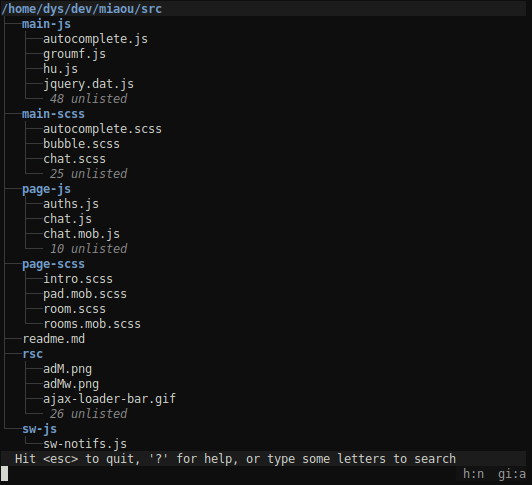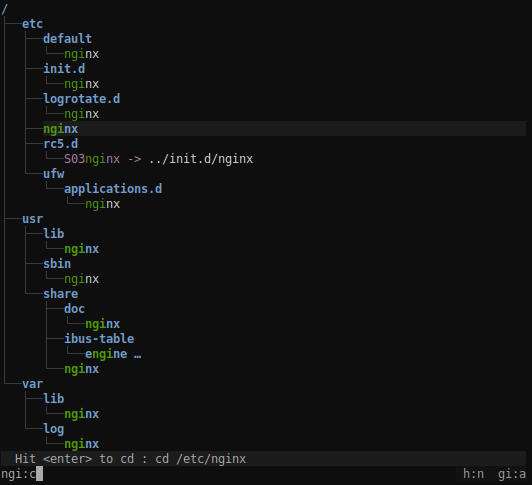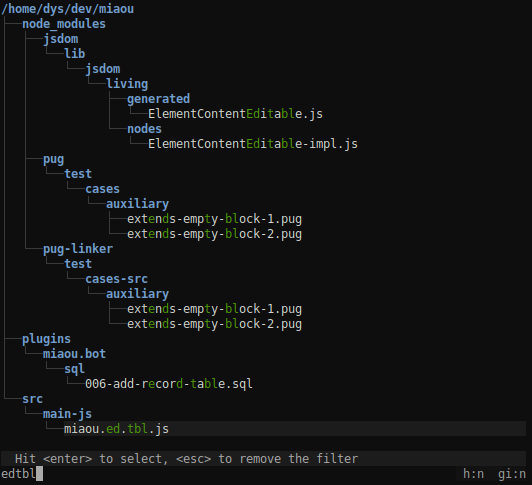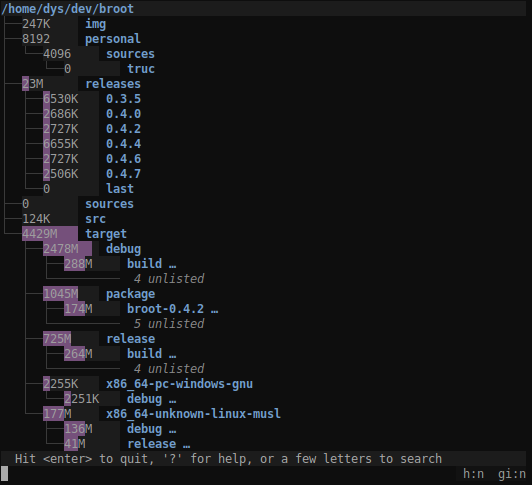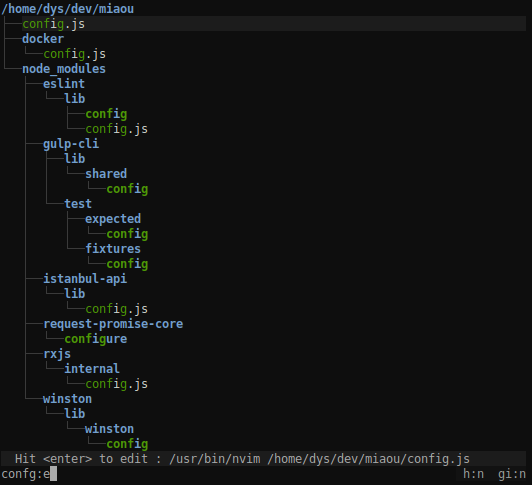Broot
A better way to navigate directories.
Get an overview of a directory, even a big one:
Notice the "unlisted" ? That's what makes it usable where the old tree command would produce pages of output.
.gitignore files are properly dealt with to put unwanted files out of your way (you can ignore them, though, see documentation).
Find a directory then cd to it:
You can this way navigate to a directory with the minimum amount of keystrokes, even if you don't exactly remember where it is.
broot is fast and never blocks, even when you make it search a big slow disk (any keystroke interrupts the current search to start the following one).
Most useful keys for this:
- the letters of what you're looking for
<enter>to select a directory (staying in broot)<esc>to get back to the previous state or clear your search<alt><enter>to get back to the shell havingcdto the selected directory (see below):qif you just want to quit (<esc>works too)
Never lose track of file hierarchy while you fuzzy search:
broot tries to select the most relevant file. You can still go from one match to another one using <tab> or arrow keys.
You may also search with a regular expression. To do this, add a / before or after the pattern.
Complex regular expression are possible, but you'll probably most often use a regex to do an "exact" search, or search an expression at the start or end of the filename.
For example, assuming you look for your one file whose name contains "abc" in a big directory, you may not see it immediately because of many fuzzy matches. In that case, just add a slash at the end to change you fuzzy search into an exact expression: abc/.
And if you look for a filename ending in "abc" then you may anchor the regex: abc$/.
See what takes space:
To toggle size display, you usually hit :s. Sizes are computed in the background, you don't have to wait for them when you navigate.
Apply a personal shortcut to a file:
Just find the file you want to edit with a few keystrokes, type :e, then <enter> (you should define your preferred editor, see documentation).
More...
See the complete Documentation.
Installation
Compile
You'll need to have the Rust development environment installed.
From crates.io
cargo install broot
From Source
Fetch the Canop/broot repository, move to the broot directory, then run
cargo build --release
The executable is written in the target/release directory (you might want to move it to your /usr/bin, or to add the release directory to your path).
From up to date precompiled binaries
cd
broot is convenient to find a directory then cd to it, which is done using <alt><enter> or :cd.
But broot needs a companion function in the shell in order to be able to change directory. To enable this feature, add this to your .bashrc (or the relevant file for another shell):
# start broot and let it change directory
function br {
f=$(mktemp)
(
set +e
broot --out "$f" "$@"
code=$?
if [ "$code" != 0 ]; then
rm -f "$f"
exit "$code"
fi
)
code=$?
if [ "$code" != 0 ]; then
return "$code"
fi
d=$(cat "$f")
rm -f "$f"
if [ "$(wc -c <(echo -n "$d") | head -c1)" != 0 ]; then
cd "$d"
fi
}
(you'll have to source the file or open a new terminal)
With this addition, you can do just br to launch broot, and typing <alt><enter> will cd for you.
Development
To ease tests during development, a log file can be generated (and followed using tail -f) by using the BROOT_LOG env variable.
For example:
BROOT_LOG=debug cargo run
or
BROOT_LOG=info cargo run
If you want to discuss the code or features of broot, please come to our chat. Before to start coding for a PR, it would really be a good idea to come and talk about it.
If you'd like a new feature, don't hesitate to ask for it.
